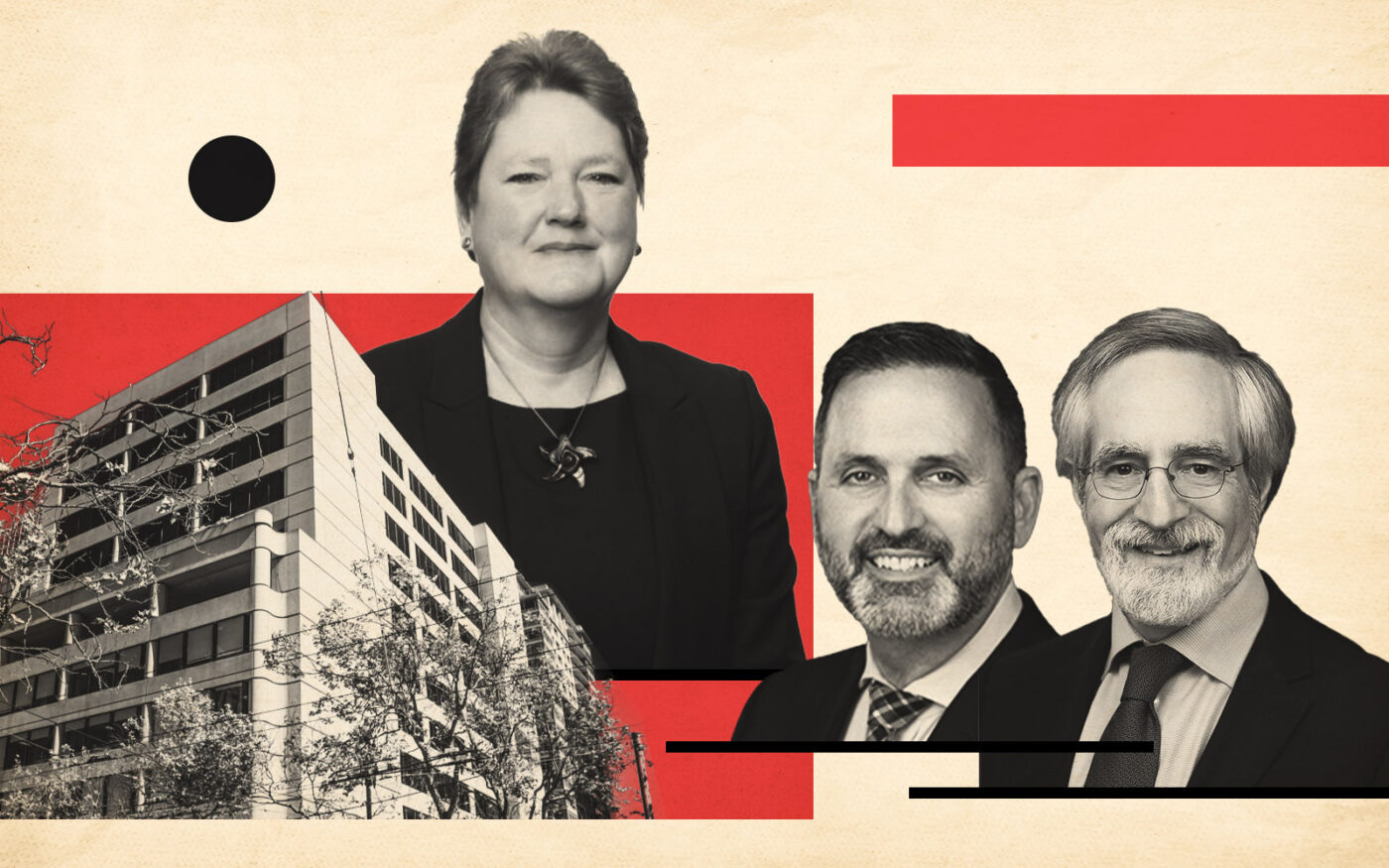A $48 million loan on the office building partly occupied and mostly owned by the LightHouse for the Blind in downtown San Francisco has transferred to special servicing.
CEO Sharon Giovinazzo said the city “blindsided” the nonprofit for the visually impaired by threatening to walk away from a five-year lease renewal for more than 100,000 square feet that was meant to run until early 2028.
“As one of the oldest nonprofits in the city, this will have an impact to the LightHouse,” she said via email. “The sad part is that the city is doing exactly what they criticize others for; they are abandoning the Mid-Market area, precisely in the shadow of City Hall.”
Seven city departments, including the Mayor’s Office of Disability, the Department of the Environment and the Assessor and Tax Collector, have offices in the lower eight floors of 1155 Market Street. The LightHouse resides on the 11-story tower’s top three floors, which is legally separated from the eight floors below. The city has occupied the lower levels for more than 10 years. According to servicer commentary from Trepp, the top three floors of the property are not part of the collateral on the loan.
The city’s lease expired at the end of January 2023 and the Department of Real Estate had agreed to sign an extension until the end of January 2028, pending city approval, with a five-year option to extend further. The deal would have cost the city nearly $6.7 million annually, with a 3 percent increase each year, or about $65 per square foot, with about $2.4 million in rent credits. But in September 2023, the city’s Budget and Finance Committee rejected the agreement, saying that the city was paying too much and that it was more interested in buying properties in Civic Center than spending money on rent.
“I think the city can get a better deal than this,” said Supervisor Ahsha Safai during the September hearing. “I don’t necessarily feel comfortable paying this over value.”
Supervisor Aaron Peskin added that it was important to “send a message” that the city, as a major taker of office space, will get more aggressive on its rental negotiations to take advantage of the down market, where one in three offices are empty.
“We can talk with our feet,” he said at the hearing.
Giovinazzo said the city has continued to occupy and pay rent on the space as the negotiations have continued. The nonprofit is “exploring options” about what it can do if the city walks away from the lease extension, but has “been blindsided by this.” She said they continue to go back and forth, and that the last offer was for $36 a square foot, with two years free rent.
“Losing the city as a tenant would create a great financial hardship for the LightHouse for the Blind,” Giovinazzo said. “In an effort to avoid this, the landlord has made several proposals to the city for renewing the lease at lower rents.”
She added that the city has not been forthcoming about its plans and that she has only heard rumors that it has decided to move to another building. The building’s owners, which include Patson Companies with a minority stake, have reached out to other city officials “in an effort to convince the city to honor the commitment it made, which was to extend the lease for an additional five years.”
San Francisco-based Patson Companies bought the entire 140,000-square-foot building at 1155 Market Street for $72.6 million in 2014, shortly after it had undergone a major renovation. It leased the top three floors to the LightHouse, which provides job training, clinics and youth programs for blind and low-vision people, with the intention that the LightHouse would eventually purchase its floors, according to Patson’s website.
In 2015, Patson and the LightHouse for the Blind completed a recapitalization of the property, which made the LightHouse the majority owner of the building. Patson currently has a 10 percent stake in the building, Giovinazzo said.
The ownership has been keeping its lender informed of the proceedings with the city, and has requested the involvement of a special servicer, Giovinazzo said. The loan is scheduled to mature in January 2026, according to Trepp.
Read more


